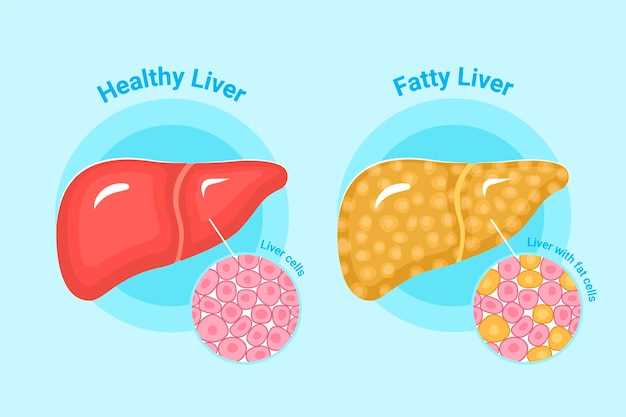
Are you concerned about your liver health? Do you want to lower your cholesterol levels effectively? Look no further than atorvastatin – the powerful medication that can help you achieve both goals.
Atorvastatin is a highly effective prescription drug used to lower cholesterol levels and triglycerides in the blood. By inhibiting the production of cholesterol in the liver, atorvastatin helps prevent the build-up of plaque in the arteries, reducing the risk of heart disease and stroke.
However, you may be wondering about the potential side effects of atorvastatin on liver health. While it is true that some individuals may experience an increase in liver enzyme levels while taking atorvastatin, this is a rare occurrence and is usually reversible once the medication is discontinued.
It is important to note that the benefits of atorvastatin in improving cholesterol levels far outweigh the potential risks. Speak to your doctor about any concerns you may have regarding your liver health and the use of atorvastatin.
Don’t let high cholesterol levels and liver concerns hold you back from a healthier life. Take control of your health with atorvastatin today!
Understanding liver enzymes

Enzymes are proteins that play a crucial role in the chemical reactions that occur within our bodies. Liver enzymes are specific types of enzymes that are mainly found in the cells of the liver.
There are several different liver enzymes, including alanine aminotransferase (ALT), aspartate aminotransferase (AST), alkaline phosphatase (ALP), and gamma-glutamyltransferase (GGT). These enzymes are involved in various metabolic processes and are essential for the normal functioning of the liver.
Routine blood tests can measure the levels of these enzymes in the bloodstream. Elevated levels of liver enzymes may indicate liver damage or disease.
| Enzyme | Normal Range | Function |
|---|---|---|
| ALT | 7 to 56 units per liter (U/L) | Breaking down proteins and producing glucose |
| AST | 8 to 48 U/L | Metabolizing amino acids and producing energy |
| ALP | 45 to 115 U/L | Assisting in the breakdown of proteins and fats |
| GGT | 8 to 61 U/L | Transporting molecules across cell membranes |
It is important to understand the role of liver enzymes as they can give insight into the overall health of your liver. Monitoring liver enzyme levels can help detect potential liver problems early and allow for timely intervention.
In conclusion, liver enzymes are vital for the proper functioning of the liver and play a crucial role in various metabolic processes. Routine monitoring of liver enzyme levels is essential for maintaining liver health and detecting any potential issues. If you are taking atorvastatin, it is especially important to regularly monitor your liver enzyme levels to ensure the medication is not causing any adverse effects on your liver.
Effect of atorvastatin on liver enzymes
When taking atorvastatin, it is important to understand its effect on liver enzymes. Atorvastatin is a medication that is commonly used to lower cholesterol levels in the body. However, it can also have an impact on liver enzymes, which are proteins that help the liver function properly.
Research has shown that atorvastatin can cause a slight increase in liver enzymes in some individuals. This increase is usually mild and temporary, and it does not necessarily indicate liver damage. In fact, studies have shown that the vast majority of people who take atorvastatin do not experience any significant changes in their liver enzymes.
However, it is still important to monitor liver enzymes while taking atorvastatin, especially in individuals who have a history of liver problems or who are taking other medications that may also affect liver function. Regular monitoring of liver enzymes can help ensure that any potential issues are identified early and can be addressed promptly.
If you are taking atorvastatin and have concerns about the impact on your liver enzymes, it is important to discuss these concerns with your healthcare provider. They can provide guidance and recommend any necessary testing or monitoring to ensure your liver health is protected.
Effect of atorvastatin on liver enzymes
Atorvastatin, a commonly prescribed medication for lowering cholesterol levels, can potentially affect liver enzymes. Liver enzymes play a crucial role in the metabolism and breakdown of various substances in the body, including medications.
While atorvastatin is generally well-tolerated by most individuals, it can sometimes lead to an increase in liver enzymes. This increase is typically mild and temporary, and in most cases, the levels return to normal without causing any liver damage.
It is important to note that the rise in liver enzymes is not a reason to discontinue atorvastatin treatment, as the benefits of this medication in lowering cholesterol and reducing the risk of heart disease outweigh the potential risks associated with elevated liver enzymes.
However, it is crucial to monitor liver enzyme levels regularly during atorvastatin treatment to ensure the liver is functioning properly. Your healthcare provider may order blood tests to check liver enzyme levels before starting the medication and periodically thereafter.
If there is a significant increase in liver enzymes or any signs of liver dysfunction, your healthcare provider may adjust the dosage or consider alternative medications. It is essential to follow your healthcare provider’s instructions and attend all scheduled check-ups to ensure your liver health is maintained while taking atorvastatin.
Additionally, it is important to maintain a healthy lifestyle to support liver health while taking atorvastatin. This includes eating a balanced diet, exercising regularly, avoiding excessive alcohol consumption, and avoiding the use of tobacco products.
By monitoring liver enzymes and taking steps to maintain liver health, individuals can safely benefit from the cholesterol-lowering effects of atorvastatin while minimizing potential risks to their liver function.
Monitoring liver enzymes during atorvastatin treatment
It is important to monitor liver enzymes while taking atorvastatin to ensure the medication is not causing liver damage. Liver enzymes are substances produced by the liver that are necessary for the body’s metabolism and overall health. When liver enzymes are elevated, it could indicate liver damage or dysfunction.
During atorvastatin treatment, regular blood tests should be conducted to monitor liver enzyme levels. These tests will allow healthcare professionals to assess the liver’s health and determine if any changes need to be made to the dosage or treatment plan.
If liver enzyme levels become elevated while taking atorvastatin, it is important to consult with a healthcare professional. They may recommend reducing the dosage or switching to an alternative medication. Ignoring elevated liver enzymes can lead to further liver damage and other complications.
In addition to regular monitoring, it is important to maintain overall liver health while taking atorvastatin. This can be done by:
- Eating a balanced diet rich in fruits, vegetables, and whole grains.
- Avoiding excessive alcohol consumption.
- Exercising regularly to maintain a healthy weight.
- Avoiding tobacco and illicit drug use.
- Limiting the use of over-the-counter medications that can damage the liver.
By monitoring liver enzymes and taking steps to maintain liver health, individuals can safely and effectively manage their cholesterol levels with atorvastatin.
Tips for maintaining liver health while taking atorvastatin
While taking atorvastatin to manage your cholesterol levels, it’s important to prioritize your liver health. Here are some tips to help ensure a healthy liver while on atorvastatin:
1. Follow a balanced diet
Eating a diet rich in fruits, vegetables, whole grains, and lean proteins can help support overall liver function. Avoiding processed foods, excessive alcohol consumption, and foods high in saturated fats can also help protect your liver.
2. Stay hydrated
Drinking plenty of water throughout the day helps your liver function properly. Aim to consume at least 8 cups of water daily to maintain optimal hydration.
3. Exercise regularly
Engaging in regular physical activity can improve liver health and overall well-being. Try to incorporate at least 30 minutes of moderate-intensity exercise into your daily routine, such as brisk walking, cycling, or swimming.
4. Limit alcohol intake
Excessive alcohol consumption can cause liver damage and interfere with the effectiveness of atorvastatin. It’s important to follow your doctor’s recommendations regarding alcohol consumption while taking this medication.
5. Avoid over-the-counter medications
Some over-the-counter medications, such as pain relievers and cold medicines, can be hard on the liver. Consult with your doctor or pharmacist before taking any new medications to ensure they won’t interfere with your liver health.
6. Get regular check-ups

It’s important to have regular check-ups with your healthcare provider to monitor your liver enzymes and overall liver health. They can provide guidance and make any necessary adjustments to your treatment plan.
By following these tips, you can help support your liver health while taking atorvastatin and maintain overall well-being. Remember to consult with your doctor for personalized advice and guidance specific to your health condition.
